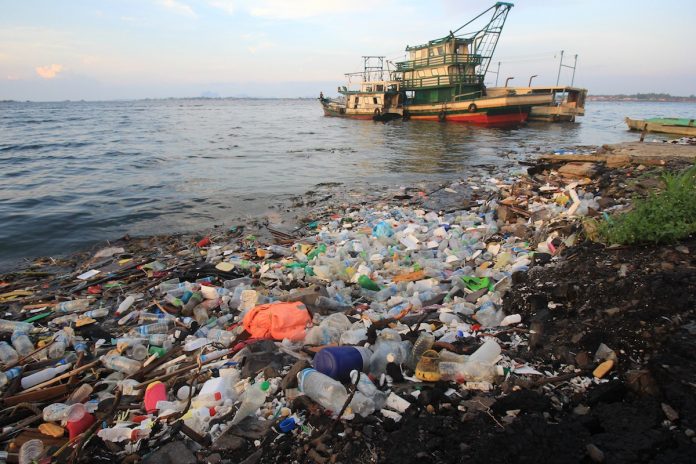Greenpeace Philippines on Friday welcomed the adoption of a resolution mandating the creation of a global treaty to end plastic pollution.
In a statement, the group said the agreement provides a strong warning for plastic polluting companies to immediately align themselves to global ambitions by reducing their plastic production and shifting to reuse and refill models.
The group said that the resolution, adopted at the 5th session of the UN Environment Assembly (UNEA 5.2) in Nairobi, Kenya last Wednesday, will be instrumental in forging a legally binding agreement that can help developing countries like the Philippines to stand up against corporate polluters.
“This resolution spells the beginning of the end to decades of corporate-led indiscriminate and irresponsible plastic production that has created the plastic pollution crisis we face today,” said Marian Ledesma, Greenpeace Zero Waste campaigner.
She said “the ambitious mandate coming from UNEA 5.2 establishes good parameters for negotiations for a strong, comprehensive plastics treaty which prioritizes humankind and the earth.”
Ledesma said the plastics treaty mandate is particularly notable because it recognizes that every stage of plastic production and use—from extraction of raw materials from fossil fuels, to disposal—is problematic.
It also recognizes how plastic pollution at land and sea crosses boundaries and infests even the most remote places on the planet.
She said that developing countries like the Philippines “will have a rallying point to call for drastic measures to cut down on production and start a just transition.”
“With the technical and financial assistance mentioned, we can get serious about investment in measures such as reuse systems and deposit-return schemes,” said Ledesma.
She said, however, that the Philippine government must continue to support the call for a comprehensive agreement, and must pass a national ban on single-use plastics with directives for reduced production to complement a treaty.
Local government units can also align themselves to the global ambition by promoting reuse and refill systems, and opposing waste-burning technologies.
“It is important that the next administration ensures that key provisions are included in the final agreement, such as legally binding reduction targets for plastic production and technical and financial support to institutionalize reuse models,” she said.
Greenpeace believes that the anticipated Plastic Treaty will also help keep global temperatures below 1.5-degree Celsius.
In September 2021, a Greenpeace report revealed the links between the world’s largest brands and fossil fuel companies—some of which operate in the Philippines—and the lack of transparency around emissions from plastic packaging.
“There is a glimpse of hope there for the communities and ecosystems which have been imperiled by the plastic pollution crisis,” said Ledesma.
“This is an opportunity to introduce systemic changes necessary to stop the harms of plastic, like cutting down on production and toxic additives in plastic,” she added.









